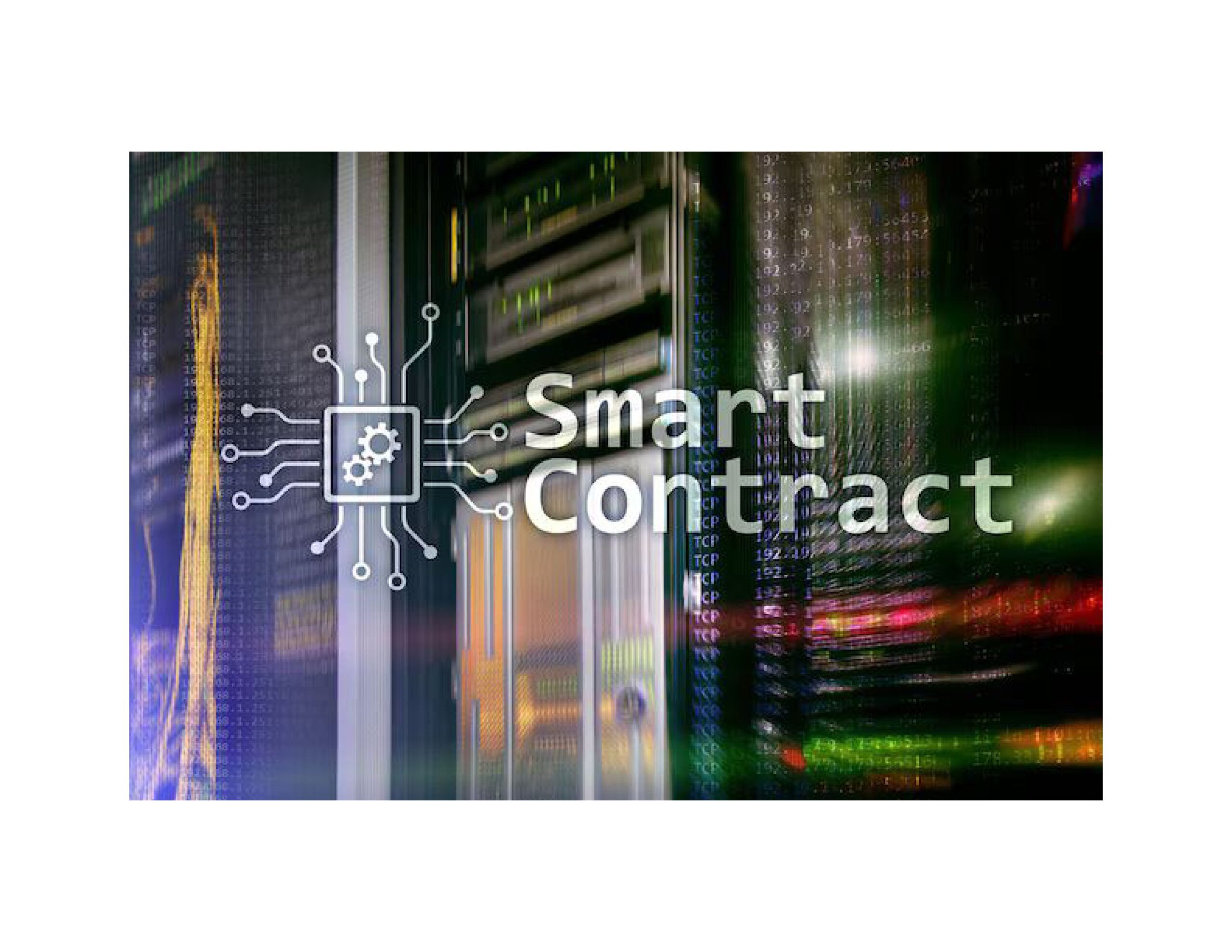
Blockchain technology has transformed various industries by offering a decentralized and secure way to record transactions and data. One of the most groundbreaking features of the blockchain is the concept of smart contracts. Smart contracts are self-executing contracts with the terms of the agreement directly written into code. These contracts automatically enforce and execute the terms when predefined conditions are met, eliminating the need for intermediaries and enhancing transparency, security, and efficiency.
The Evolution of Smart Contracts
Computer scientist and cryptographer Nick Szabo first introduced the concept of smart contracts in the 1990s. Szabo envisioned a system where contractual agreements could be executed through computer protocols, thus reducing the need for trusted third parties. However, it wasn’t until the advent of blockchain technology, particularly with the introduction of Ethereum in 2015, that intelligent contracts became practically viable and widely adopted.
How Smart Contracts Work
Intelligent contracts operate on blockchain platforms, where they are stored and executed. Here’s a breakdown of how they function:
- Code Creation: A smart contract is created by writing code that defines the rules and penalties of the agreement, along with the specific conditions that trigger the contract’s execution. This code is usually written in a high-level programming language for smart contracts, such as Solidity for Ethereum.
- Deployment on Blockchain: The smart contract is deployed on a blockchain network once written. This process involves uploading the code to the blockchain, where it becomes an immutable part of the blockchain’s ledger.
- Triggering Conditions: The intelligent contract remains dormant until its predefined conditions are met. These conditions can be anything from the passage of time to the occurrence of a specific event or the receipt of a particular asset.
- Automatic Execution: When the conditions are satisfied, the smart contract automatically executes the terms. For example, if a smart contract is designed to release a payment upon the delivery of goods, the payment is automatically transferred once the delivery is confirmed.
- Immutable and Transparent: All transactions and actions performed by the smart contract are recorded on the blockchain, making them transparent and immutable. This ensures the contract cannot be altered or tampered with after deployment.
Key Features of Smart Contracts
Smart contracts offer several features that make them highly advantageous over traditional contracts:
- Automation: Smart contracts automate the execution of agreements, reducing the need for manual intervention and the possibility of human error.
- Security: Blockchain’s decentralized nature and use of cryptographic techniques ensure that smart contracts are secure and resistant to tampering and fraud.
- Transparency: The terms of the contract and the transaction history are visible to all parties involved, promoting transparency and trust.
- Cost-Efficiency: Smart contracts reduce the costs associated with contract execution and enforcement by eliminating intermediaries such as lawyers, brokers, and banks.
- Speed: Automated execution speeds up the process of fulfilling contract terms, which is particularly beneficial in time-sensitive agreements.
Applications of Smart Contracts
Smart contracts have a wide range of applications across various industries. Some of the most notable use cases include:
- Finance and Banking: Smart contracts streamline financial transactions, automate payment processes, and enable complex financial instruments such as derivatives and bonds to be managed more efficiently.
- Supply Chain Management: By tracking the movement of goods and automatically verifying conditions at each stage, smart contracts enhance transparency and reduce fraud in supply chains.
- Real Estate: Smart contracts can automate the process of property transfers, including verifying ownership, managing escrow accounts, and recording deeds.
- Insurance: Insurance companies use smart contracts to automate claims processing, ensuring that claims are paid out quickly and accurately when predefined conditions are met.
- Healthcare: In healthcare, smart contracts can manage patient records, ensure the secure sharing of medical data, and automate billing and insurance claims.
- Legal Agreements: Legal contracts such as wills, trusts, and business agreements can be encoded into smart contracts to ensure they are executed according to the specified terms.
Challenges and Limitations
Despite their potential, smart contracts face several challenges and limitations that need to be addressed:
- Complexity: Writing and deploying intelligent contracts require specialized programming knowledge, hindering widespread adoption.
- Scalability: Blockchain networks, particularly Ethereum, face scalability issues that can limit the number of transactions and smart contracts that can be processed simultaneously.
- Legal Recognition: The legal status of smart contracts varies across jurisdictions, and there are ongoing debates about their enforceability in traditional legal systems.
- Security Risks: While smart contracts are secure, they are not immune to bugs and vulnerabilities in the code, which malicious actors can exploit.
- Interoperability: Different blockchain platforms may not be compatible, posing challenges for integrating and interacting smart contracts across different systems.
The Future of Smart Contracts
The future of intelligent contracts looks promising, with ongoing developments aimed at overcoming current limitations and expanding their use cases. Some of the key trends and advancements include:
- Interoperability Solutions: Efforts are underway to create standards and protocols that enable interoperability between different blockchain networks, allowing smart contracts to interact seamlessly across platforms.
- Improved Scalability: New blockchain architectures and consensus mechanisms, such as sharding and proof-of-stake, are being developed to enhance the scalability and efficiency of blockchain networks.
- Enhanced Security: Advances in formal verification and auditing tools are improving the security and reliability of smart contract codes, reducing the risk of vulnerabilities.
- Legal Integration: As smart contracts gain recognition, legal frameworks and regulations are evolving to provide more explicit guidelines on their use and enforceability.
- Mainstream Adoption: As awareness and understanding of intelligent contracts grow, more industries and businesses are likely to adopt this technology to streamline operations, reduce costs, and enhance transparency.
Smart contracts represent a significant innovation in blockchain technology, offering a decentralized, secure, and efficient way to execute agreements. Their potential to revolutionize various industries is immense, from finance and supply chain management to real estate and healthcare. While challenges remain, ongoing advancements and increasing adoption suggest a bright future for smart contracts, positioning them as a cornerstone of the digital economy. As technology continues to evolve, smart contracts will likely play an increasingly vital role in shaping how we conduct transactions and manage agreements in the modern world.
Real-World Applications of Smart Contracts
To illustrate the practical impact of smart contracts, let’s explore some real-world case studies where this technology has been successfully implemented.
- De Beers and Diamond Tracking
De Beers, one of the largest diamond companies in the world, has implemented a blockchain-based system called Tracr to track diamonds from mine to retail. Smart contracts ensure transparency and authenticity at each stage of the diamond’s journey. By leveraging smart contracts, De Beers can verify the provenance of diamonds, reducing the risk of fraud and ensuring that only ethically sourced diamonds reach consumers.
- AXA’s Fizzy Insurance
AXA, a global insurance company, launched Fizzy, which uses smart contracts to automate flight delay insurance. When a customer purchases a policy, the intelligent contract monitors the flight’s real-time status. If the flight is delayed beyond a predefined threshold, the smart contract automatically triggers a payout to the policyholder. This automation eliminates the need for customers to file claims and speeds up the compensation process.
- Propy and Real Estate Transactions
Propy is a blockchain-based real estate platform that uses smart contracts to facilitate property transactions. By digitizing the entire process, from listing and bidding to payment and transfer of ownership, Propy reduces the time and costs associated with traditional real estate transactions. Smart contracts ensure that all parties fulfil their obligations, and the transaction is recorded on the blockchain for added security and transparency.
- IBM Food Trust
IBM Food Trust is a blockchain-based platform that enhances transparency and traceability in the food supply chain. The platform can track food products from farm to table using smart contracts, ensuring that safety and quality standards are met at each stage. This helps identify the source of foodborne illnesses quickly and builds trust among consumers regarding the authenticity and quality of the products they purchase.
Technical Aspects of Smart Contracts
Understanding the technical aspects of smart contracts is crucial for appreciating their functionality and potential. Here are some critical technical components and concepts:
- Programming Languages
Smart contracts are written in programming languages designed specifically for blockchain environments. The most widely used language is Solidity, used to write smart contracts on the Ethereum platform. Other languages include Vyper (also for Ethereum), Chaincode (for Hyperledger Fabric), and Rust (for Polkadot and Solana).
- Decentralized Applications (DApps)
Smart contracts are often used as the backend logic for decentralized applications (DApps). These applications run on a blockchain network rather than a centralized server, providing enhanced security and transparency. DApps can cover various use cases, from financial services and gaming to social media and supply chain management.
- Consensus Mechanisms
Smart contracts rely on blockchain’s consensus mechanisms to validate and execute transactions. Popular consensus mechanisms include Proof of Work (PoW), used by Bitcoin and Ethereum (though Ethereum is transitioning to Proof of Stake), and Proof of Stake (PoS), used by networks like Cardano and Polkadot. These mechanisms ensure that the network agrees on the state of the blockchain and the execution of smart contracts.
- Oracles
Oracles are services that provide external data to smart contracts, enabling them to interact with real-world events. For example, an oracle can provide weather data to a smart contract for crop insurance, triggering a payout if specific weather conditions are met. Oracles are essential for expanding the functionality of intelligent contracts beyond the blockchain.
Security Considerations
Security is paramount for intelligent contracts, given their immutable nature once deployed. Here are some common security considerations and practices:
- Code Audits
Professional security firms conduct regular code audits to help identify and fix vulnerabilities in smart contract code before deployment. These audits are crucial for ensuring the reliability and security of smart contracts.
- Formal Verification
Formal verification involves mathematically proving that a smart contract’s code behaves as intended. This process helps prevent bugs and security flaws by providing a rigorous check against the contract’s specifications.
- Bug Bounties
Many organizations offer bug bounty programs to incentivize ethical hackers to find and report vulnerabilities in smart contracts. These programs help identify potential security issues early and mitigate risks.
- Multi-Signature Wallets
Using multi-signature wallets for managing smart contracts adds an extra layer of security. These wallets require multiple parties to sign off on transactions, reducing the risk of unauthorized actions.
The Role of Smart Contracts in DeFi
Decentralized Finance (DeFi) is one of the most transformative applications of smart contracts. DeFi leverages blockchain and smart contracts to create open, permissionless financial systems without traditional intermediaries. Critical components of DeFi include:
- Decentralized Exchanges (DEXs)
DEXs use smart contracts to facilitate peer-to-peer trading of cryptocurrencies. Examples include Uniswap and SushiSwap, which allow users to trade assets directly from their wallets without needing a centralized exchange.
- Lending and Borrowing Platforms
Platforms like Aave and Compound use smart contracts to enable users to lend their assets and earn interest or borrow assets by providing collateral. These smart contracts automatically manage interest rates and collateralization ratios.
- Stablecoins
Stablecoins are cryptocurrencies pegged to stable assets like fiat currencies. Intelligent contracts manage the issuance and redemption of stablecoins, ensuring they maintain their peg. Examples include USDC and DAI.
- Yield Farming and Liquidity Mining
Yield farming involves providing liquidity to DeFi protocols in exchange for rewards. Smart contracts automate the distribution of rewards based on the amount of liquidity supplied and the duration of the contribution.
Regulatory and Ethical Considerations
As smart contracts become more prevalent, regulatory and ethical considerations are increasingly important:
- Regulatory Compliance
Ensuring smart contracts comply with relevant regulations is crucial, particularly in industries like finance and healthcare. This includes adhering to data protection laws, financial regulations, and industry standards.
- Ethical Use
Ethical considerations include ensuring that smart contracts are used for legitimate purposes and do not facilitate illegal activities. Developers and organizations must be mindful of the potential societal impacts of their smart contracts.
- Dispute Resolution
Since smart contracts are immutable and self-executing, traditional dispute resolution mechanisms may not apply. Developing frameworks for resolving disputes that arise from intelligent contract execution is an ongoing area of research and development.
Smart contracts are a cornerstone of blockchain technology, offering unprecedented levels of automation, security, and efficiency in executing agreements. Their applications span various industries, from finance and supply chain management to real estate and healthcare. While challenges and limitations exist, ongoing advancements in technology and regulatory frameworks pave the way for broader adoption and more sophisticated use cases. As smart contracts continue to evolve, they hold the potential to fundamentally transform how we conduct transactions and manage agreements in the digital age.



